Friends - Interview Part 3
by Tommy Gunnarsson
published: 26 / 12 / 2003
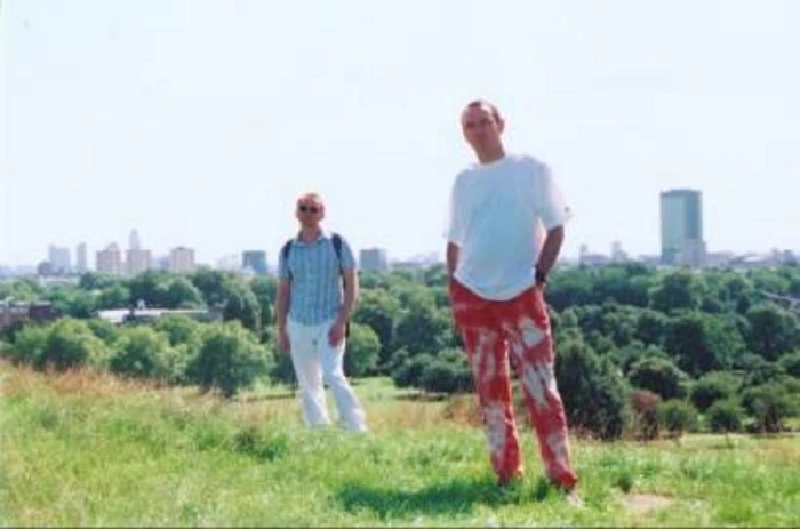
intro
In the third and final part of our interview with long-serving C86 act Friends, Tommy Gunnarsson talks to frontman William Jones about the art of writing a great pop song, and his own label Summerhouse
PB : What do you think of MP3s ? Do you think that it is a good thing for everybody ? WJ : My belief is that music’s a value, and it shouldn’t be free and it shouldn’t be stolen in the first instance. In my opinion it’s worth something, and whatever the channels you access it with, whether it is on vinyl or CD or the internet, there should be a means by which people who make it can be paid, unless they choose not to, and unless they choose to make their music free to anyone who want to hear it, You can’t ring a plumber and ask him to do his work for free. Generally people who don’t care about it being free are either vey unsuccessful. They’re not going to sell anything anyway or are very successful and have more to worry about. PB : What do you think makes a great pop song ? WJ : There’s something about it that is immediately captivating or which grabs you in some way, mentally or emotionally or both, and when you keep listening to it you can still feel that. PB : Do you think the lyrics are important ? WJ : They’re very important. The balance between music and lyrics is constantly flux in pop music, but I think that the lyrics are absolutely essential to whether the song is attractive or not. I always find songs where the lyrics are meaningless or where you can’t work out what you’re singing about a turn-off. You know those songs where the lyrics are clearly written under the influence of drugs or are made to sound that way. I find you can’t access those lyrics unless you’re in that state yourself or if you think it doesn’t matter what they mean. It matters to me. It matters to me to understand lyrics. I find, with songs like that where you are thinking what on Earth does that mean, that there’s nothing there for me. PB : How do you write a song ? Do you write the lyrics first or the music ? WJ : It varies a great deal. When I was studying music, classical music at university, one of the first things we learned was to just write down on a piece of paper the sounds that we hear. It’s how a lot of classical composers write. They take a pen and they don’t need to try it out on the piano or whatever. They just write what they are hearing down like words. I tend to write a lot of the music that way. Sometimes the words come first and I tend to think that’s a really good title, or that’s a really good phrase, or a really good sentence, so I try to find some music for it. Sometimes the music comes first and we rehearse the songs for a long time, and of course the words come. Sometimes those songs tend to be the best songs when the words and music come at the same time. There’s a song called ‘You’ll Never See That Summertime Again’ where the tune and the words came together. It’ came as a flat package, and is one of our best songs. ‘Let’s Get Away from It All’ happened like that too. PB : Have you ever had an offer from a major label ? WJ : No. In the early days we used to make demo tapes and send them out to major labels as bands did at that time. We spent a lot of time and money in studios making demos . Eventually we decided that we probably wouldn’t be picked up by a major label., so we stopped doing that and started putting money into recording properly and getting stuff ready for release. Those early demo tapes weren’t very good unfortunately. When I listen to them now they are embarassing. The singing wasn’t very good. I was a very uncomfortable singer at the start and then my confidence got better. We did got decent reviews for the early records though and then the major labels would say “We’ll come and see you when we play in London”, but they wouldn’t usually show up and so we stopped bothering with them after a while. We have never had an offer though. PB : If you got an offer now, would you be interested ? WJ : It would have to be a very good offer, because we would have to probably stop working for a long, long time. It’s a very hypothetical question because it’s unlikely to happen. If it did, it would have to be a fantastic offer. PB : What’s been the biggest moment in Friends for you ? Do you have a single moment ? WJ : Yeah, I’ve got a couple of moments really. There was one gig we did in Stockton-on-Tees in 1989. Everything was perfect. The whole audience was dancing the whole time. It was just a brilliant gig. That was a good one. Another one was playing in Japan. I went and did a solo concert with a percussionist, and that’s where most of our audience is, so that was brilliant too. Another great moment was the first time we passed a thousand sales with any record. PB : When was that ? WJ : It was with our first album , ‘Let’s Get Away from It All’. We had done two singles, which hadn’t done that well and we were distributed by a company called Red Rhino, who at that time were part of a network of indie distributors, and they told us that if we did an album it would do a lot better than the singles and especially abroad. We were completely unknown really. Noone in Germany or Japan had really heard of us at that stage, but suddenly it went whoosh and we quite quickly got to a 1000. We thought “My God, we’re going to do a million” (Laughs !) PB : You have had some of your songs played on the radio ? WJ : Yeah ! PB : That must have been a great feeling. WJ : It was. Yes ! PB : You have your own label, Summerhouse,which puts out Friends’ releases. WJ : I am involved in the label. I helped to set it up in 1986 with some other people in Stockton-on-Tees. Originally I was working in this venue in Stockton. My role was as a music officer, and I programmed a lot of concerts-pop music, classical, jazz, folk, world music-and I ran classes and courses and workshops in music and we put on local bands every week and then we started putting on bands from the indie scene. We got a lot of bands before they went on to become much bigger, people like the Housemartins, Black, the Bodines, Primal Scream, and other bands like that, just before they really took off. The Mighty Lemon Drops played there. Edwyn Collins played there. Carter played there, and a band called 4, 000, 000 Telephones played there, who were the most remarkable live band I have ever seen. There was 16 of them. They were very unusual and totally wacky. There were two singers, who shouted most of the time. They were absolutely brilliant and they went down really well with the audience. We formed the label really so that we could release Friends’ music and the music of Carl Green who was in Whirlpool Guest House and 4,000, 000 Telephones who we liked very much and who we wanted to get out records by .The whole idea of this label was that it was based around this venue where I happened to be working There were quite a lot of people initially involved with Summerhouse. We started off with those three bands, and then, as it grew, we took on Rumblefish who were quite big at the time and a Newcastle Band called Quinn the Eskimo who did one album. Bands join, split up, fall apart, have rows, that kind of thing. Red Rhino, who distributed our stuff, went into liquidation and they had a lot of Summerhouse’s stock which caused a lot of problems, so the label got kind of slimmed down. It ended up for a while just being Friends and Shandy Wildtyme,to which Whirlpool Guest House changed their name, but they’ve now also split. Summerhouse has since then taken on a dance group called Southbeach. Friends and Southbeach are now the two main bands, and we’re now looking at a third one to sign. PB : Are you looking for new bands ? WJ : No, there is someone we particulary want to sign, and it may happen. It may not, but we’re not looking for new bands. PB : You don’t want to make it bigger. WJ : Not at the moment ! No in the early days the label got too big too quickly and it just wasn’t very manageable. Running a label is hard work. It’s a job in itself. I have a job. The other people on the label have jobs, so there is limited time to what we can put into it. PB : Do you think there is a big difference between. ‘Let’s Get Away from It All’, your first album and ‘Beautiful You’, your last album ? WJ : Yes. ‘Let’s Get Away from it all’ was recorded by five very inexperienced people, most of them who were recording for the first time. The whole thing was recorded in less than a week and it’s got a very simple, plain production, while on ‘Beautiful you’ the style of the songs is much more varied and the songs are more better developed. It’s got a fuller sound and the playing is much more competent and I think that it’s technically better-produced. Some people like it. Some people don’t like it, but I think that’s the difference. In my opinion the overall quality on the last album is higher. The quality of the songs is higher than on the first album. On the first album there’s some great songs, but there’s a couple of not so great songs. On the last one I’m happy with all the songs.. PB : Do you prefer vinyl or CD ? WJ : I prefer the sound of CD, but there’s things about vinyl I like. I like the whole kind of feel of the product, the size of an LP, its cover. Despite CDs being such a popular medium, I think the whole packaging is completely awful. It’s such a hassle getting it out. I am just amazed that noone has managed to sort that out after all these years. You have to sort of unpick the booklet to get it out of there. I find vinyl much nicer to handle, but I have to say that I don’t miss all the pops and scratches you get. PB : Have you ever thought about putting any of your recent album s on vinyl? WJ : No, because it would affect our sales too much. There are people in Japan who seem very keen on vinyl, but I think that that isj ust a kind of trend . We’re, however, doing South Beach stuff on vinyl only. PB : Do you buy a lot of records ? WJ : No, I don’t. I have to admit that most of what I buy as well is old stuff. PB : What do you listen to ? WJ : Again a lot of old stuff. I constantly listen to Steely Dan. I still listen to the Chameleons and the Strawbs. I listen to Nick Drake, who I discovered a couple of years ago, There’s a songwriter called Martin Newell, who used to be in Cleaners from Venus. I love his music. Have you read ‘Lost in Music ” by Giles Smith ? PB : No. WJ : You should read that. The whole story is about the Cleaners from Venus. It’s a brilliant book. I like Bob Mould very much. There’s not a lot else I listen to at the moment. Southbeach’s record is coming out, and I have become more interested in dance music as a result of that. There’s very little contemporary stuff. PB : You’re not trying to find new bands. Indie pop bands ? WJ : No PB : For a new band starting up what advice would you give ? WJ : The best advice I got was don’t split up (laughs). Although we’ve been through many stages, and I suppose I am the only permanent member, we have never really split up and we have always kept the name going. There’s no value in having a name unless you’ve got music coming out. I have always written lots of music. It would have been easy though to play less, give it up, or think let’s change the name. Friends is not a great name. Unfortunately the TV programme came along after we formed. It sounded like a great name at the time. It doesn’t so much now, but we’ve always thought that there’s no point in changing it because it’s so difficult to get known again as a different name and to start all over again. My advice, therefore. would be don’t split up. if you have got music coming out , keep it going. My other advice to a band would be take it very seriously, but to do it, however successful you become, tfor pleasure. Make sure that you enjoy it, and always remember that the reason you are doing it is because you have something to communicate to other people. As soon as you start thinking of it as a career move, you might be might just as well be going into banking or another job. The reason you do it is because you have something to say and you want people to hear it. Whether you’re on a major label, or doing it through your sound board and speakers in your front room, that’s why you do it. If you haven’t got something to say, and you’re not interested in someone hearing it, don’t bother. PB : That’s the end of the questions. Thank you.
Picture Gallery:-
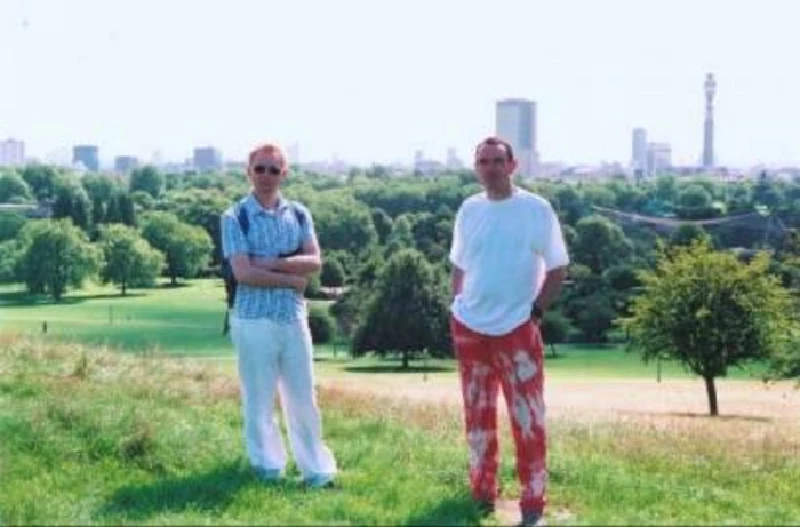
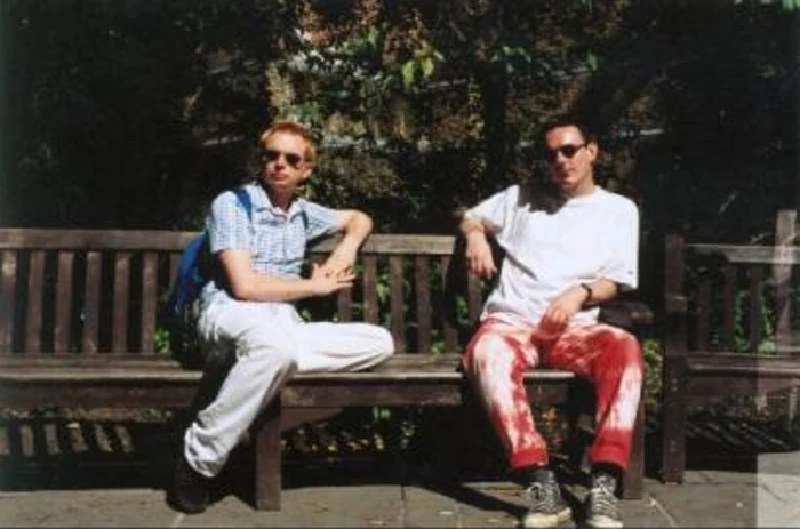
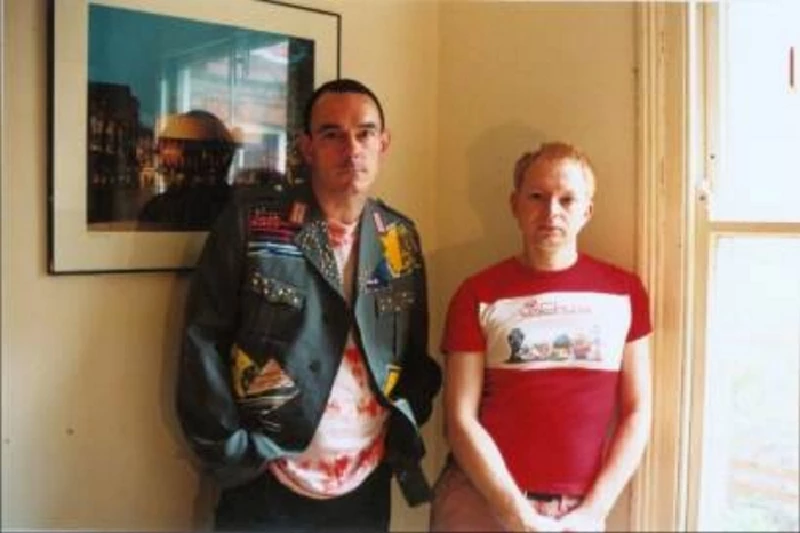
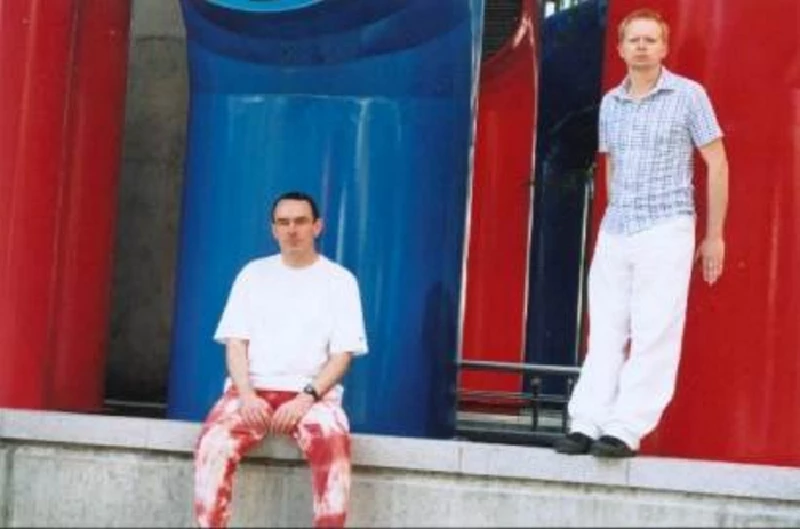
interviews |
|
Interview (2007) |
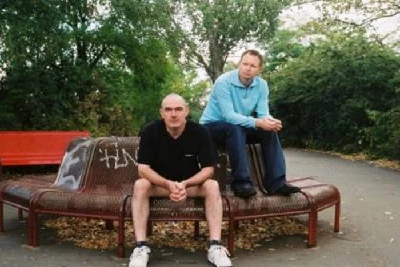
|
| In our third interview with them, Sarah Johnson speaks to William Jones from durable indie pop group Friends about the band's just released ninth album, 'Spangleland', and recent return to live work after an absence of nearly 15 years |
| Interview with William Jones (2004) |
| Interview Part 2 (2003) |
| Interview Part 1 (2003) |
reviews |
|
The Zen House (2011) |
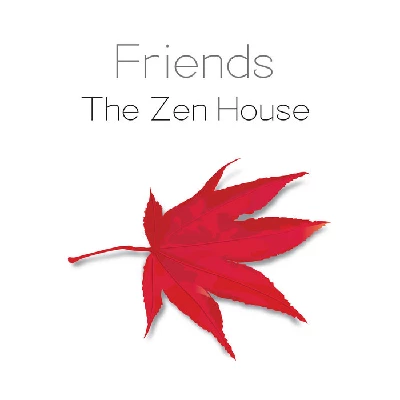
|
| Flawed acoustic tenth album from long-term London-based indie-pop outfit, Friends |
| Single Friends (2009) |
| Spangleland (2007) |
| Late Night Early Morning (2004) |
| Beautiful You (2002) |
| Best Of (2002) |
most viewed articles
current edition
Tossing Seed - InterviewMotorcycle Boy - Interview
Last of the Lovely Days - Interview
Waterboys - Roundhouse, London, 1/6/2025
Lemonheads - O2 Ritz, Manchester, 16/8/2025
Cary Baker - Down on the Corner: Adventures in Busking and Street Music
Belouis Some - Video Vault
Robert Forster - Interview
Brian Wilson - 1942-2025
Morrissey - Photoscapes
previous editions
Flip Side - Raging PagesBob Mould - Brooklyn Bowl, O2 Academy, London, 11/2/2016
Bill Hicks - Profile
Stereogram Revue - Voodoo Rooms, Edinburgh, 2/12.2015
That Petrol Emotion - That Petrol Emotion, Town and Country Club, London, 1988
Dave Greenfield - 1949-2020
Miscellaneous - Minehead, Somerset, 8/5/2009...10/5/2009
John Clarkson - A Life in Music
School - Interview
Ain't That Always The Way - Alan Horne After The Sound of Young Scotland 2
most viewed reviews
current edition
Liarbilitys - VandalheartKirk Adams and Ed Woltil - Eat The Sunshine, Drink The Starshine
Silver Biplanes - Coming Up For Air
Big Flame - Peel Sessions 84-86
Suzie Ungerleider - Among The Evergreens
Bruce Dickinson - More Balls to Picasso
Good Charlotte - Motel du Cap
Wolf Alice - The Clearing
Rupert Wates - Father to the Man
Phew, Erika Kobayashi,, Dieter Moebius - Radium Girls
Pennyblackmusic Regular Contributors
Adrian Janes
Amanda J. Window
Andrew Twambley
Anthony Dhanendran
Benjamin Howarth
Cila Warncke
Daniel Cressey
Darren Aston
Dastardly
Dave Goodwin
Denzil Watson
Dominic B. Simpson
Eoghan Lyng
Fiona Hutchings
Harry Sherriff
Helen Tipping
Jamie Rowland
John Clarkson
Julie Cruickshank
Kimberly Bright
Lisa Torem
Maarten Schiethart